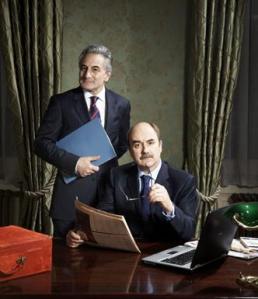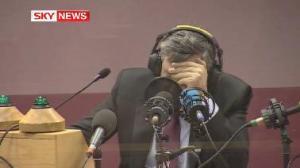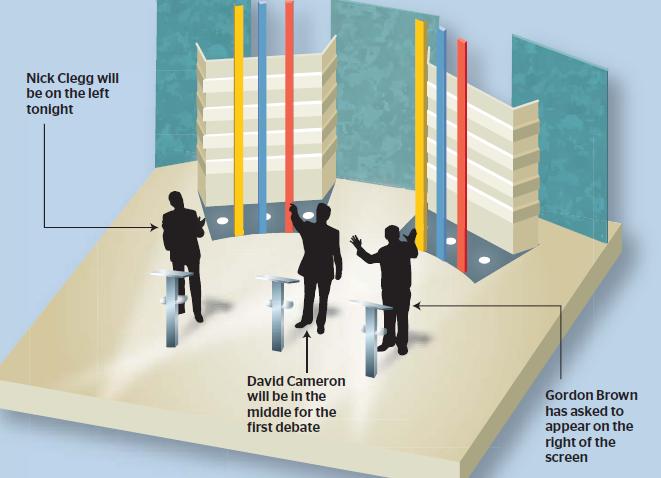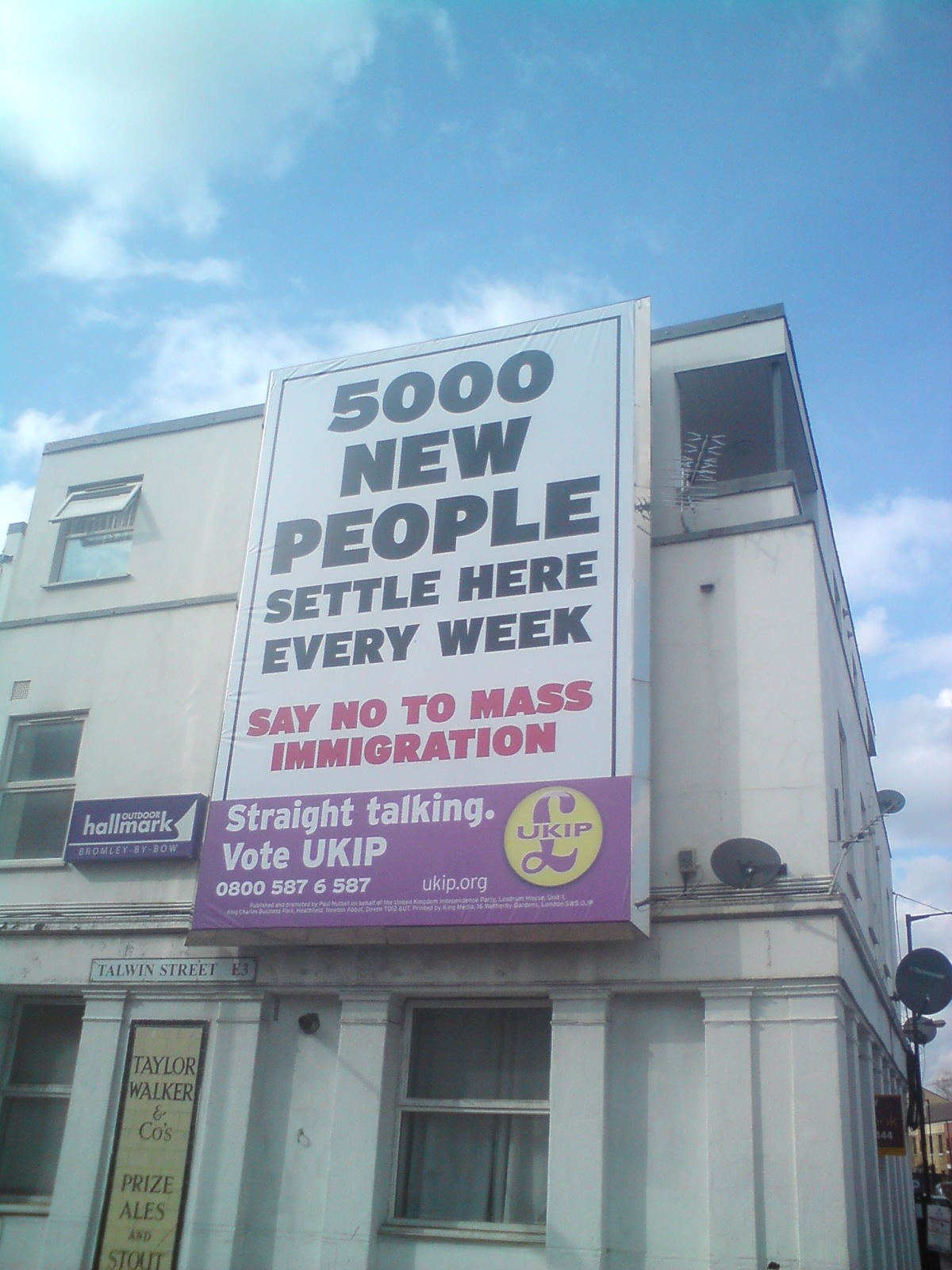 “I’m not so sure about a hung parliament – hanging would be too good for them,” quips Sir Humphrey Appleby, and there are plenty more puns where that came from.
“I’m not so sure about a hung parliament – hanging would be too good for them,” quips Sir Humphrey Appleby, and there are plenty more puns where that came from.
Yes, Prime Minister has returned and politicians across the country will sleep much less easily as a result. During the 1980s, the BBC TV series was a roaring success; over five series (including three of the original incarnation Yes, Minister) it won over the most unlikely of fans, including Margaret Thatcher and Tony Benn.
Paul Eddington played the endearingly incompetent Jim Hacker MP, who was given to grand public gestures and Churchillian declamations, whilst Nigel Hawthorne provided the perfect accompaniment as the devious Cabinet Secretary Sir Humphrey who sought to rein in Hacker’s idealistic tendencies.
Three decades on and the show’s co-writers (Sir Anthony Jay and Jonathan Lynn) have added edginess and controversial views to their already bursting arsenal of political irreverence and acidic public sector satire. After the sad deaths of Eddington and Hawthorne, the creators have moved to cast David Haig (The Thin Blue Line, Four Weddings and a Funeral) and Henry Goodman (The Damned United, Notting Hill) in the main roles. Haig’s turn as Hacker manages to combine statesman-like cunning with bumbling ineptitude, but sadly misses the loveable vulnerability that Eddington brought to the role. Goodman takes Sir Humphrey’s Machiavellian deception to a whole new level, whilst keeping the basic justification that what the PM doesn’t know can’t hurt him.
The plot nonchalantly juggles various hot-potato topics, including Middle Eastern oil imports, illegal immigrants and teenage prostitution. The section most likely to cause offence amongst liberal theatrical types, however, is the flippant treatment of climate change as the ultimate panacea for politicians looking to distract attention from their current failings. Referring to his proposed green reforms, Hacker boasts “even if it doesn’t make any difference, no-one will know for at least 50 years.”
It is in the second half, though, that the heady blend of intellectual farce and quick-fire wordplay starts to drag a little. With escalating volumes of spirits ingested, Hacker becomes increasingly desperate and absurd in his behaviour, and you suddenly become aware that this is new territory for the franchise. At no point are subtle concepts such as sympathy or compassion entertained which, whilst unsurprising, is a little disappointing as the play edges past the two hour mark.
Despite its discreet shortcomings, the return of Yes, Prime Minister is almost perfect in its timeliness. With the political uncertainty of a Hung Parliament a ripe topic for satire, this production will run and run. A West End transfer is surely inevitable. Indeed, it wouldn’t be surprising to see this show outlast the Lib-Con coalition it so superbly lampoons.
Yes, Prime Minister is on at the Chichester Festival Theatre until 5th June www.cft.org.uk
Article first published by Open Magazine
 Tomorrow sees a momentous occasion in British politics. It will be only the second time in the history of this country that the public will be asked to give their opinion in the form of a referendum, yet not many people seem at all excited about it.
Tomorrow sees a momentous occasion in British politics. It will be only the second time in the history of this country that the public will be asked to give their opinion in the form of a referendum, yet not many people seem at all excited about it. Tomorrow sees a momentous occasion in British politics. It will be only the second time in the history of this country that the public will be asked to give their opinion in the form of a referendum, yet not many people seem at all excited about it.
Tomorrow sees a momentous occasion in British politics. It will be only the second time in the history of this country that the public will be asked to give their opinion in the form of a referendum, yet not many people seem at all excited about it.









